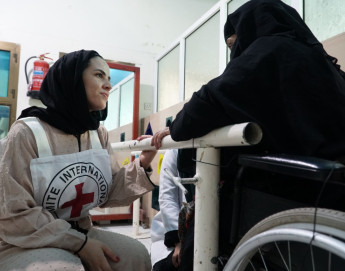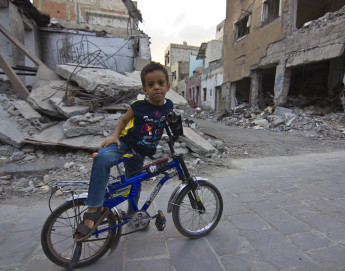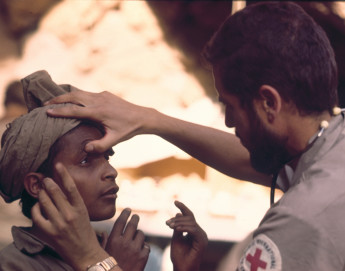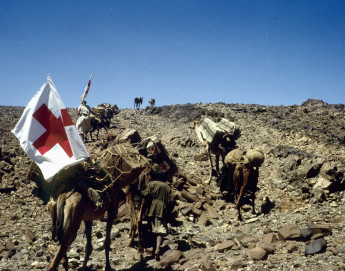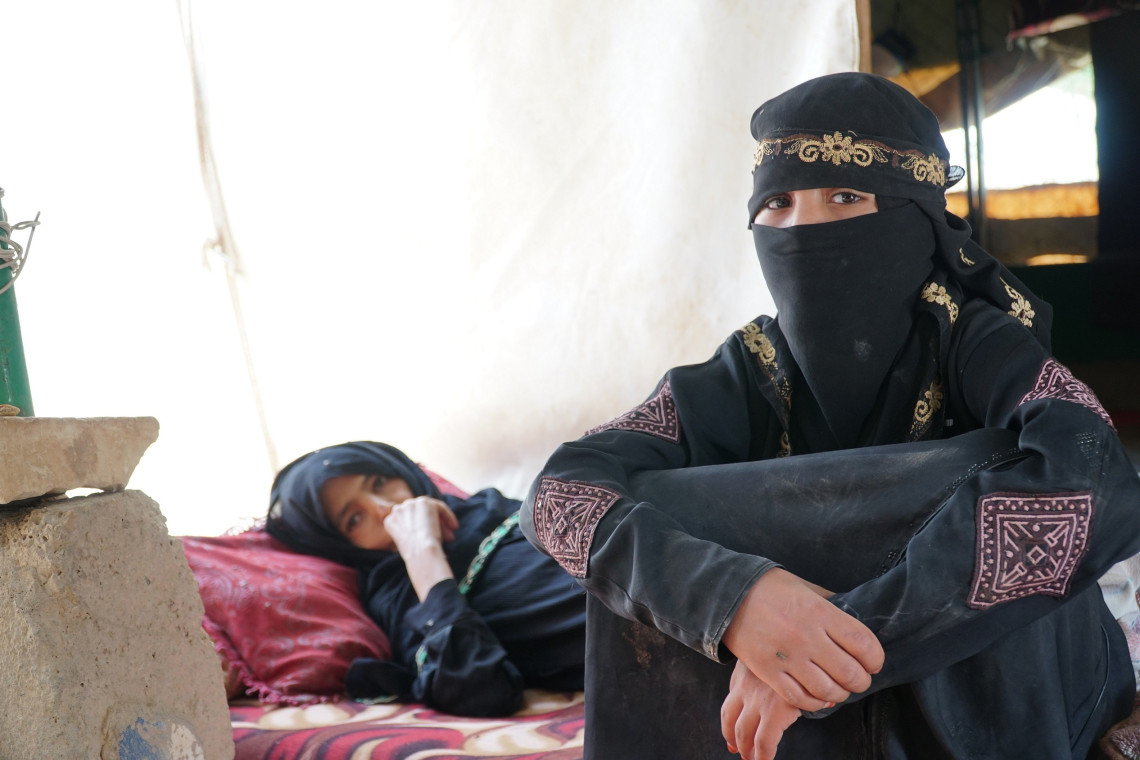
Violence, economic hardships, and climate changes deepen humanitarian crisis in Yemen

But the ramshackle collection of tents in the troubled country was in fact a camp that is home to some 12,500 people uprooted by the eight-year conflict – a conflict that no longer generates many headlines, despite the worsening humanitarian situation.
In Swaida camp, near the northern city of Marib, time stands still. Every day is the same for its inhabitants.
The same struggles, misery and worries, all in the shadow of war. The country's longest front line is just a few kilometres away.
It's not just violence they have to contend with. In summer, temperatures can reach up to 50 degrees Celsius while the camp is also battered by frequent dust storms. In the last few months, exceptionally heavy seasonal rains have caused flash floods affecting hundreds of thousands across the country, including in Marib.
One of the ICRC's visits in June 2022 drew a lot of attention from the camp's inhabitants.
"Have you brought medicine?" someone shouted.
"My father had a stroke two weeks ago, he needs a specialist, come see for yourself," said another distressed voice.
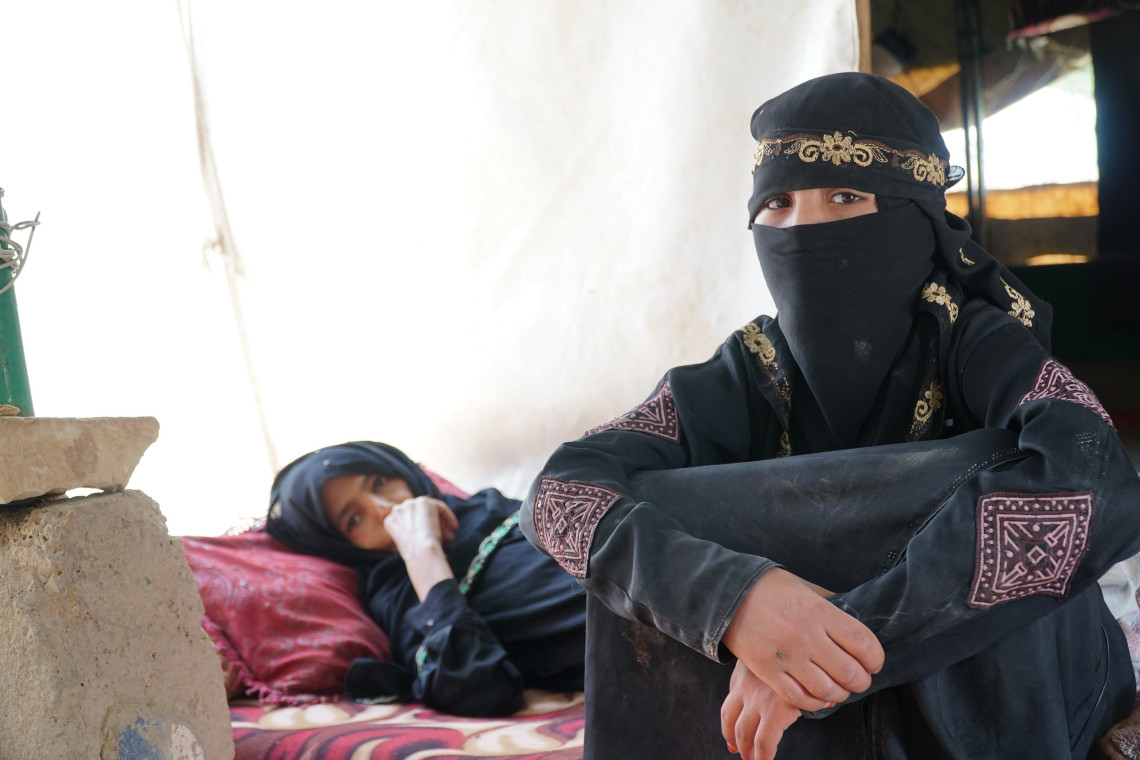
Cancer treatment in conflict zones
Amid the groundswell of voices was 12-year-old Fatima, who asked us to see her mother. We followed the young girl to her tent, where we were greeted by the smell of sewage and stagnant water.
Fatima pulled back the blanket at the entrance, revealing her visibly weak mother, Moghniya, lying on a threadbare mattress.
The mother-of-three has terminal cancer and had been receiving cancer treatment at a health centre hundreds of kilometres away.
But the violence, economic hardship and deteriorating health services in Yemen have prevented her from receiving the care she needs. She has been without treatment since the start of 2022.
"I couldn't afford the cost of transportation or bear to make such long trips between treatment sessions," said Moghniya, whose husband has left her.
Fatima takes care of her mother, as well as her two siblings. Like many children in Yemen, she has been forced to grow up fast and has been robbed of her education.
Fatima and her family are originally from Sana'a, northern Yemen. They left Sana'a five years ago and have spent the last 18 months in the camp, having been uprooted multiple times.
"I used to go to school and reached the fourth grade, then I had to stop when my mum got sick - I really wanted to become a doctor and heal people, but I've had to drop out of school."
The family's situation is all too common.
An estimated 4.2 million people have been displaced by the conflict in Yemen and many need urgent and regular access to health-care services, including advanced care. But even basic health care is difficult to find.
Women and children make up 73% of those who have had their lives uprooted.
Women, who have had to leave their homes and been separated from their husbands have little financial support, which further restricts their access to basic services.
Men can become separated from their families for several reasons. Sometimes they have to leave to find work to provide for their family, or they become separated when people flee their homes in search of safety. Some may be detained or simply missing.
Additionally, women and girls living near front lines face attack or harassment when travelling, leaving them more hesitant to seek medical care. So, women and children like Moghniya and Fatima are left languishing in squalid camps with no way out.
Their story should be making headlines. This crisis, which is getting worse by the day, should be leading news bulletins. Yet it seems to me to have slipped out of international consciousness.
More than 20 million citizens, out of a population of around 30 million, are in need of humanitarian assistance in Yemen. The intensification of fighting in areas like Marib in recent months has placed countless more lives in danger.
Having already had to leave their homes, people are now having to flee camps as fighting draws nearer.
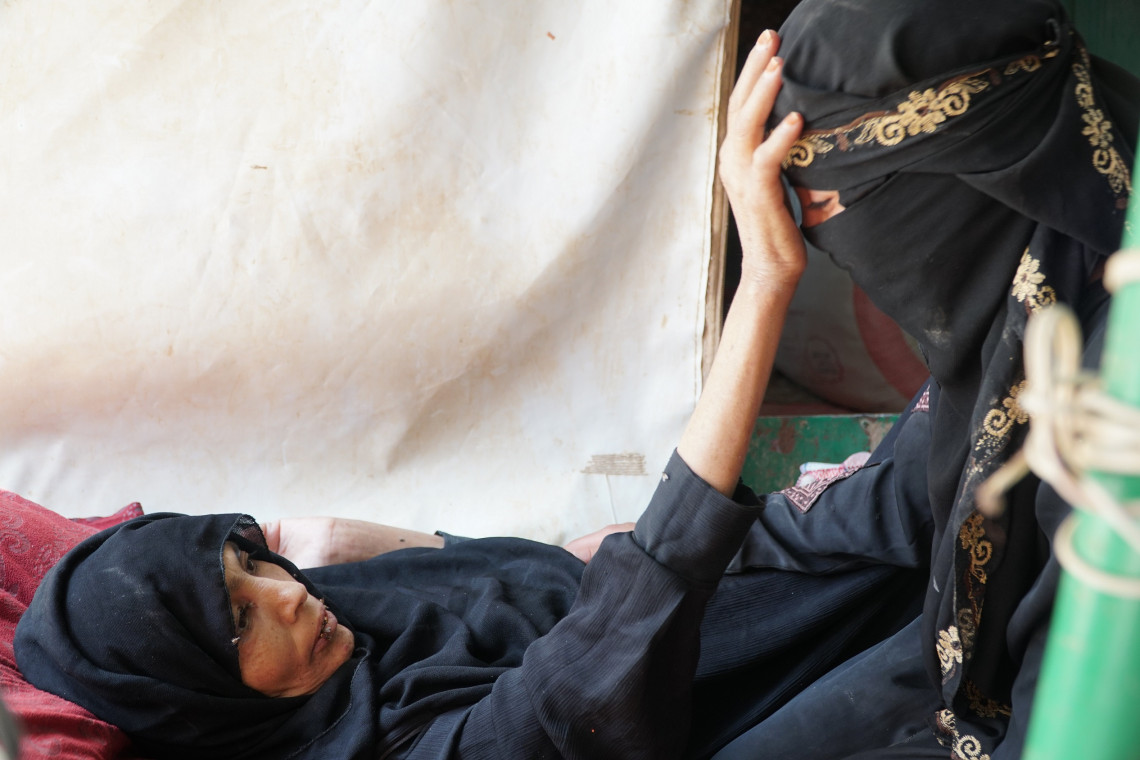
In the first half of this year, the ICRC has supported more than 322,000 people with food and other aid. We have provided support to 26 hospitals and 31 primary health-care centres across the country, helping around 1.1 million. But this is a drop in the ocean and will only provide short-term relief.
ICRC Semi-annual Activity Report 2022 in Yemen
The global financial and political commitments of aid are failing to keep pace with the growing needs of people in Yemen.
Given shortages in aid funding, several charitable organisations have been forced to reduce their work, meaning more will lack access to food, safe water, health care and education.
Eight years of raging conflict have exhausted Yemenis' ability to cope. Fatima and Moghniya represent the growing tragedy facing this country, their desperation written on their faces.
For their sake and millions like them, the international community must demonstrate its commitment to help those impacted by the crisis in Yemen before it's too late.
Two questions to Carole Dromer, deputy head of the ICRC Health Unit in Geneva
Is oncological or cancer care given enough attention in a humanitarian crisis?
Unfortunately, no. Most of the time, during acute crises, we focus first and foremost on primary health care because we want to provide vital services to most of the population. It's a matter of priorities.
In addition, cancer treatments are part of the most advanced forms of care such as complex surgery, highly specific medicines, and radiotherapies and, very often, they are just not available: qualified staff, appropriate equipment or medicine do not exist in the country. Without mentioning labs or screening and prevention policies.
So, creating on our own a viable system of care would be doomed to failure. At the end of the day, only wealthy people can afford chemotherapy or radiotherapy by going abroad. For example, Afghans go to India or Pakistan to get their treatment.
What is the ICRC doing about the state of cancer care in areas affected by armed conflict?
Recently, we put in place a simple protocol that helps provide palliative care in the hospitals that we support. The idea is to make available strong painkillers to the medical staff so that their patients do not endure unbearable suffering.
To avoid the poor quality of drugs, we usually import drugs instead of buying them locally. But morphine and its by-products are considered narcotics and have passed restrictive legislation: it may prove difficult to supply health structures on a regular basis.
As well, when in the field, let's say in an IDP camp, our teams will warn local health workers of the presence of people who need cancer treatment. If these structures are not able to admit them, we can evacuate them farther. But again, we can do so only if there is a system in place.
With your help we can continue delivering life-saving aid. Please make a donation today.

